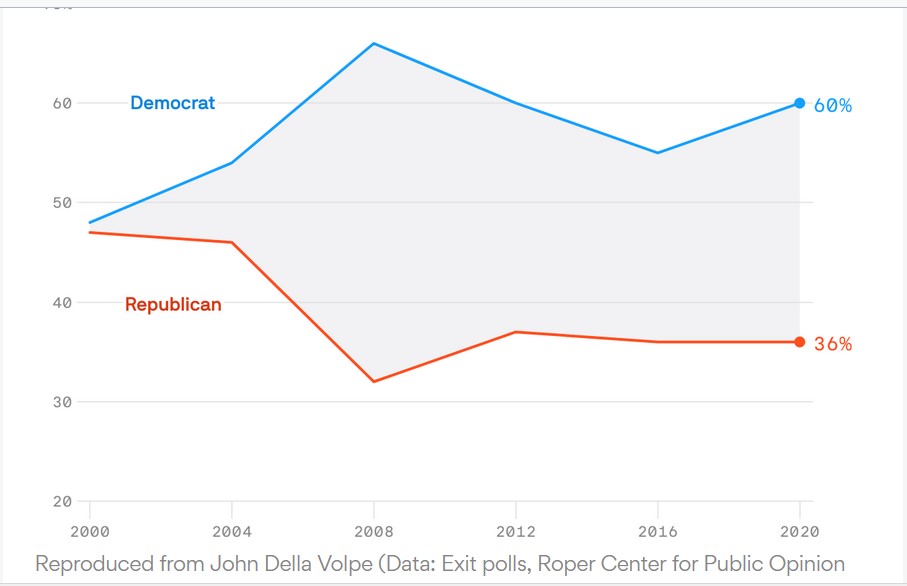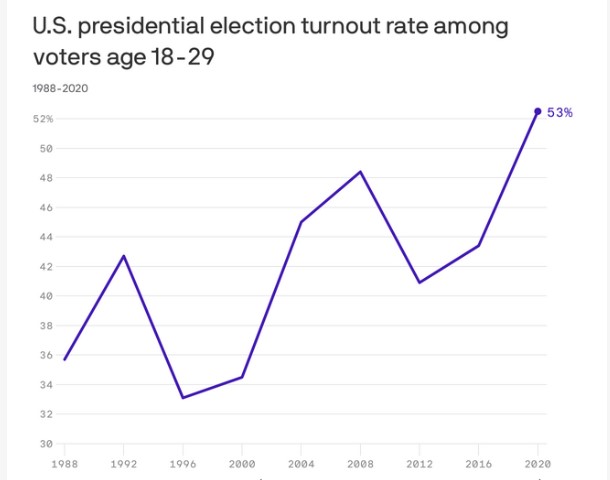As the gap between the well-to-do and the lower income groups widens ever more rapidly, a citizen might wonder why legislators aren’t aware of the strain the gap causes. One could look at the effect Putin and his oligarchy has on the Russian economy: thin support for the quality of life and constant dissatisfaction from the citizenry.
But wait. Isn’t the US a democracy? Can’t options like referendums or voting correct the national path? Actually, the situation isn’t caused by selfish dictators, it’s caused by plutocracy. Our legislator’s overhead for reelection and other benefits have become extremely expensive; over the last three decades or so, legislator overhead has grown much faster than the rate of inflation. To keep ahead, the legislators follow the money. One blatant example is Donald who has a lock on the cost of Republican primaries, forcing members who want to remain in office to kowtow to Donald’s wishes.
But Donald is just one player in the money-for-policy game. Collectively they are called the ‘K Street’ players – the professional lobbyists representing special interests. Check out the report below.
Published by Politico, here is the Lobbying Disclosure Act revenue rankings for 2021.
TOP FIRMS:
Brownstein Hyatt Farber Schreck: $56.3 million (versus $49.3 million in 2020) and $16 million in Q4 2021 (versus $12.4 million in Q4 2020)
Akin Gump Strauss Hauer & Feld: $53.4 million (versus $49.6 million in 2020) and $13.5 million in Q4 2021 (versus $12.3 million in Q4 2020)
BGR Group: $35.1 million (versus $31.9 million in 2020) and $9.2 million in Q4 2021 (versus $8.1 million in Q4 2020)
Holland & Knight: $34.9 million (versus $28.2 million in 2020) and $9.7 million in Q4 2021 (versus $7.4 million in Q4 2020)
Cornerstone Government Affairs: $34.6 million (versus $28.1 million in 2020) and $9.3 million in Q4 2021 (versus $7.6 million in Q4 2020)
Invariant: $31.2 million (versus $21.1 million in 2020) and $9.1 million in Q4 2021 (versus $5.7 million in Q4 2020)
Forbes Tate Partners: $25 million (versus $19.5 million in 2020) and $6.5 million in Q4 2021 (versus $5.1 million in Q4 2020)
Tiber Creek Group (previously Peck Madigan Jones): $24.6 million (versus $17.2 million in 2020) and $6.5 million in Q4 2021 (versus $4.5 million in Q4 2020)
Squire Patton Boggs: $24.4 million (versus $24.3 million in 2020) and $6.9 million in Q4 2021 (versus $5.1 million in Q4 2020)
Mehlman Castagnetti Rosen & Thomas: $23.8 (versus $19.3 million in 2020) and $6.3 million in Q4 2021 (versus $5.1 million in Q4 2020)
Capitol Counsel: $21.9 million (versus $19.1 million million in 2020) and $6 million in Q4 2021 (versus $5.1 million in Q4 2020)
Crossroads Strategies: $21.7 million (versus $16.5 million in 2020) and $5.7 million in Q4 2021 (versus $4.6 million in Q4 2020)
K&L Gates: $21.2 million (versus $18.6 million in 2020) and $5.8 million in Q4 2021 (versus $4.2 million in Q4 2020)
Cassidy & Associates: $20.6 million (versus $16.9 million in 2020) and $5.5 million in Q4 2021 (versus $4.3 million in Q4 2020)
Van Scoyoc Associates: $19.5 million (versus $18.1 million in 2020) and $5.4 million in Q4 2021 (versus $5 million in Q4 2020)
Thorn Run Partners: $18.9 million (versus $14.2 million in 2020) and $5.1 million in Q4 2021 (versus $3.8 million in Q4 2020)
Ballard Partners: $18.6 million (versus $24.6 million in 2020) and $4.5 million in Q4 2021 (versus $6 million in Q4 2020)
Subject Matter: $18.2 million (versus $14.5 million in 2020) and $5 million in Q4 2021 (versus $3.8 million in Q4 2020)
Covington & Burling: $17.3 million (versus $16.4 million in 2020) and $3.7 million in Q4 2021 (versus $4 million in Q4 2020)
Tarplin, Downs & Young: $15.9 million (versus $12.2 million in 2020) and $3.7 million in Q4 2021 (versus $3.3 million in Q4 2020)
Sadly, money almost solely drives policy. The press covers the really big legislation but behind the scenes, a change in this regulation or a deletion of a small requirement never makes the news. These changes are bought by K Street, who doesn’t even have a vote. A good example is how hard it is to rewrite tax legislation – a simple intellectual issue that would have a profound effect on the world of money.
Of late, plutocracy has entered the health industry. Keep an eye on changes to your health insurance coverage. By the way, Xarelto, a common blood thinner costs $4.74 per tablet in Canada and $16.29 in the U.S. Why hasn’t the Congress dealt with this? Ask your local Pharma lobbyist.
Ancient Mariner



